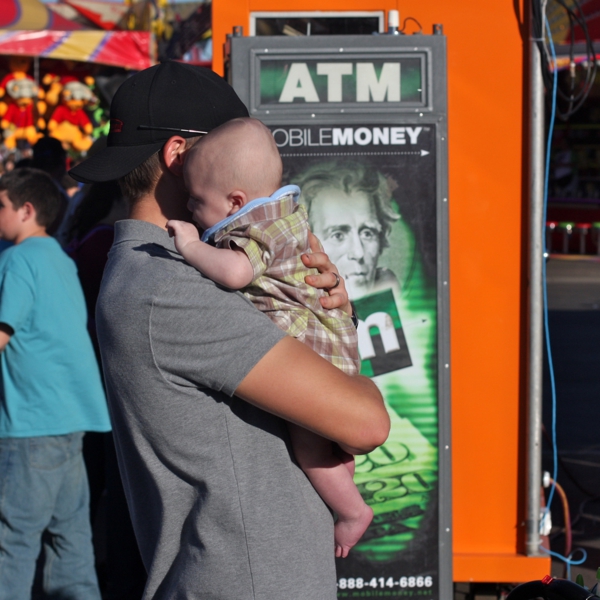Can You Be Too Careful Raising Your Infant Child?
I’m not a parenting expert. I don’t have kids of my own, and I remember there was a time I visited an old friend’s 1 month old baby and was convinced that the child had Autism because he wouldn’t make any eye contact with me. Of course, not long after I found out that babies can take as long as four months or more to start making eye contact, but at the time I was pretty gravely concerned, despite my friend’s insistence that he was fine.
He was fine, and I was completely wrong. It’s been about a year now and the child makes outstanding eye contact and is one of the smartest one year olds I’ve ever met.

Yet despite my occasional mishap, I do believe I’m a good judge of the human behavior, and one of the things I’ve noticed in modern day parents is that many are taking an overly cautious approach to parenting.
The Overprotective Parent
The best example of this is at this same friend’s house. I hadn’t seen him and his child in almost exactly a year. I’m staying at his home, and I notice something has changed – the apartment is completely free of all furniture, except for a bed in one room and a crib in another. There are no bookshelves, no tables, to chairs, no TV, no couches.
Every cabinet in the kitchen has a childproof device, including the cabinets above the sink.
I was staying in the guest room downstairs. Downstairs there is a couch, there is a TV, there is a bed, and there is a bookshelf. Otherwise it’s also free of tables or things with sharp points. I asked him if he and his son would join me down there, and he said “no, of course not, it’s not child safe.”
He and his wife are great parents. But they’re also anxious parents. They respond to any loud cry, even when they know the cause of the loud cry. They take him to the doctor whenever he’s acting unusual, even though there never seems to be an illness. They are afraid to leave the other parent alone with him for any longer than one hour because they’re worried the parent will become too overwhelmed to take care of him.
Coping with the Anxiety of Parenting
I may not be a parenting expert, but I am an anxiety expert, and this, to me, is a clear case of parenting anxiety. This couple loves their child, and they’re not trying to be strict. But with all of the news reports of poor parenting, neglect, and young babies getting into danger, they’ve allowed themselves to be overwhelmed by the anxiety of raising a child, and are letting it spill into their actions.
There isn’t an easy cure for this. I can’t tell them to be less careful with their son, because that sounds ludicrous. I can’t tell them that their son won’t get hurt, because of course he’ll get hurt – all 1 to 2 year old children get hurt. Still, it’s clear that this level of overprotection can only do more harm than good. If their child doesn’t learn now, what will happen when that child is older?
Parenting causes anxiety, because now you have to worry about this small little human being with no concept of the world. But the truth is that you cannot protect your child from everything.
Your role as a parent is to be the best parent as you can be. Beyond that, you cannot control everything your child does. Most kids will grow up to become great adults. Some will grow up to become average adults. Some may get hurt. Some may get hurt worse.
You can’t protect them from everything, but you also can’t expect to. These parents are not only potentially hurting their child’s development by preventing them from making mistakes – they’re hurting their own happiness as well, living in an apartment free from anything designed to make themselves happy because of the .000001% risk it might hurt their child.
Being a parent can cause a great deal of anxiety and stress. But you have the option of deciding if you’ll let that anxiety overwhelm your parenting decisions, and if it starts to overcome your common sense, then you’ll need to be willing to find a way to reduce it.
Ryan Rivera is an anxiety specialist that has spent years of his life dedicated to reducing anxiety in others. Now he writes about anxiety and panic attacks at www.calmclinic.com.
Photo: http://www.flickr.com/photos/pagedooley/5147979171/

